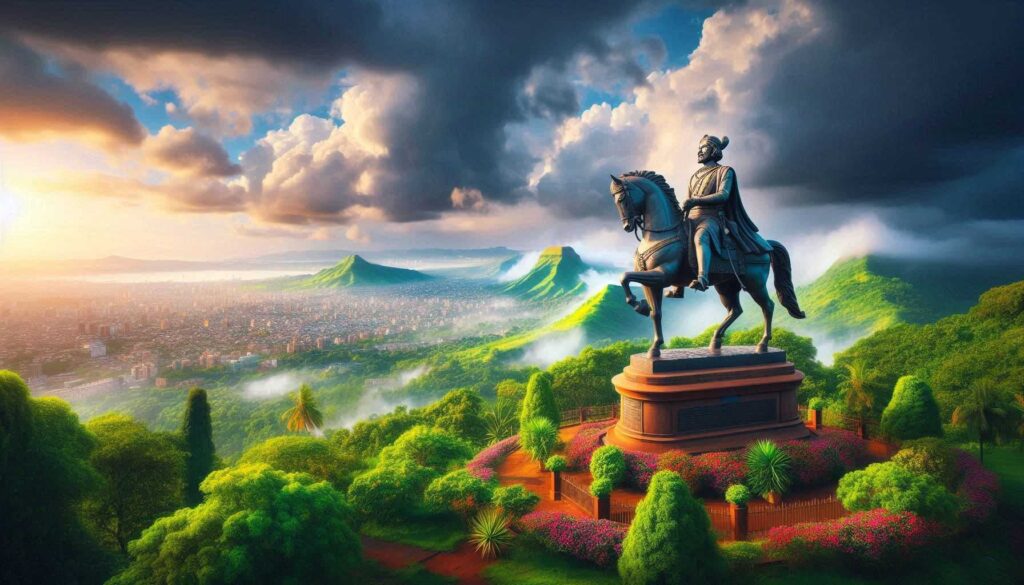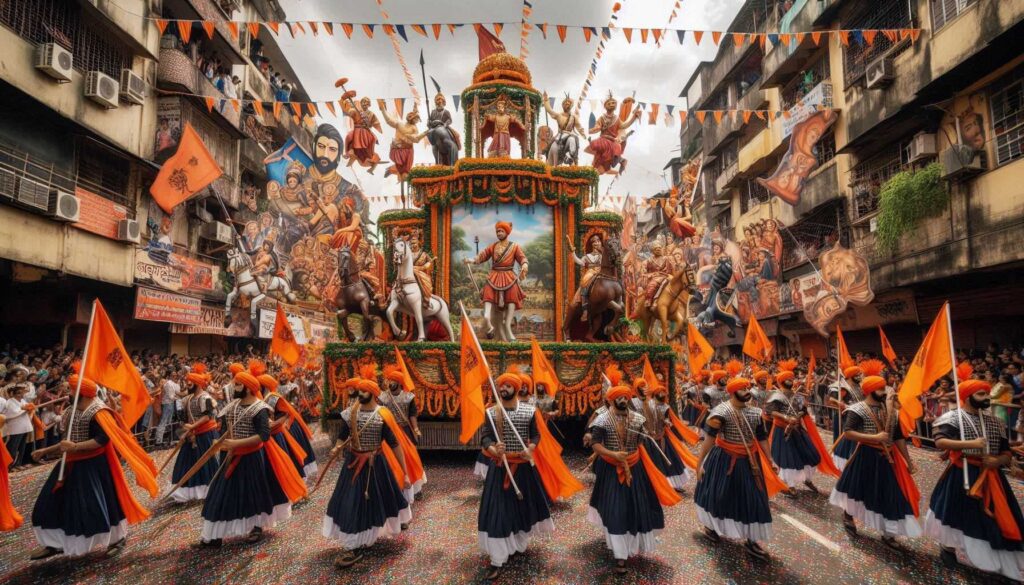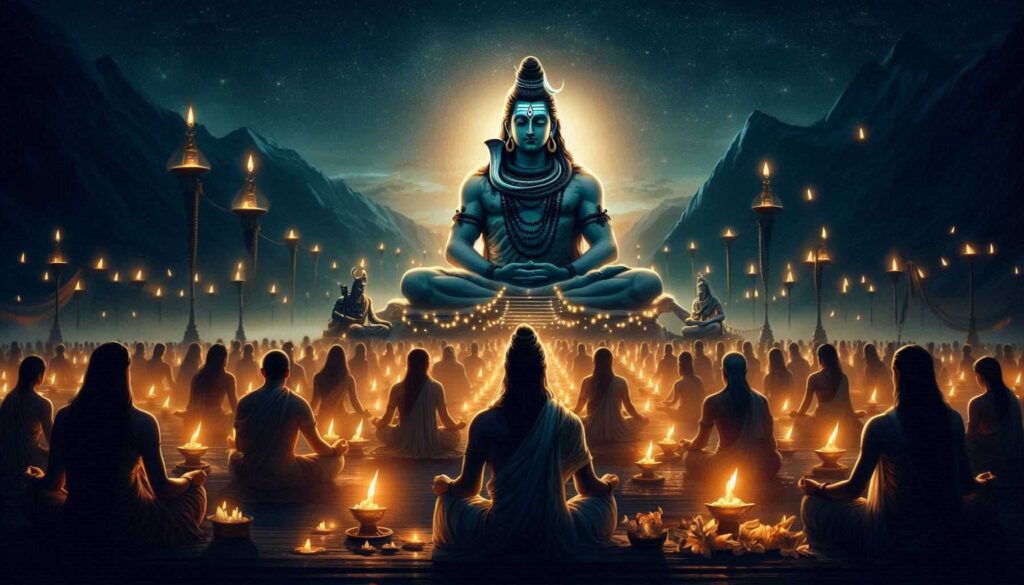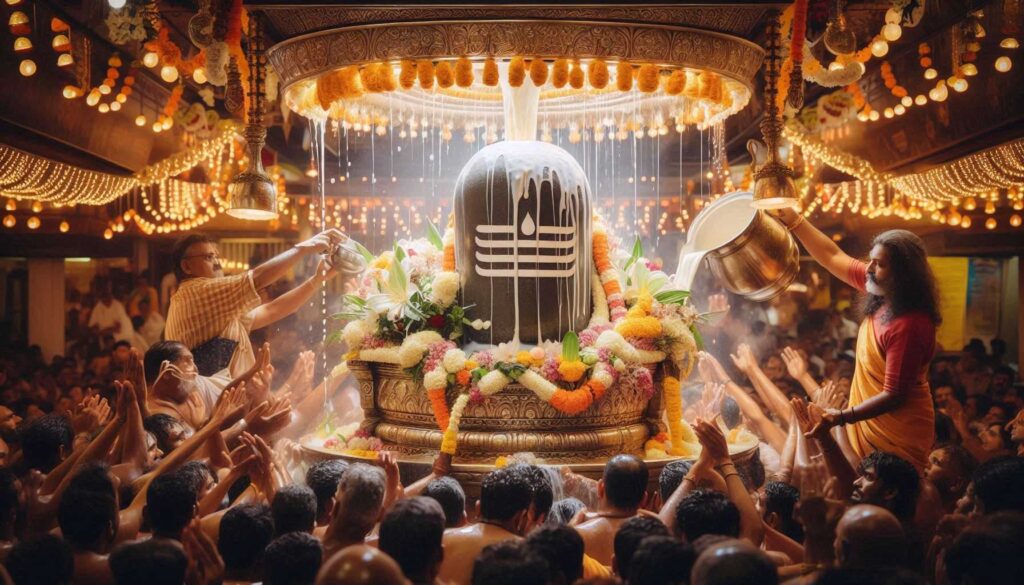Festivals in Maharashtra in February 2025
Maharashtra is a land steeped in culture, history, and vibrant traditions. February 2025 in Maharashtra brings forth some of the most iconic celebrations that reflect both the deep historical pride of the state and its devotion to spirituality. This month, two of the most prominent festivals celebrated in the state are Chhatrapati Shivaji Maharaj Jayanti, honoring the legendary Maratha warrior king, and Maha Shivaratri, a festival dedicated to Lord Shiva, one of the most revered deities in Hinduism.
In this article, we’ll explore the origins, significance, and customs associated with these two important festivals in Maharashtra, providing a comprehensive look at how they are celebrated and their enduring cultural impact.
Read More About Hindu Philosophy
1. Chhatrapati Shivaji Maharaj Jayanti – February 19, 2025 (Wednesday)

Significance: Chhatrapati Shivaji Maharaj Jayanti, or simply Shiv Jayanti, is a significant event in Maharashtra, celebrating the birth of Chhatrapati Shivaji Maharaj, the revered warrior king who founded the Maratha Empire. Born in 1630, Shivaji Maharaj is known for his indomitable spirit, military prowess, and dedication to the welfare of his people. He is regarded not just as a great ruler but as a symbol of pride and bravery for the people of Maharashtra and India.
Shivaji Maharaj’s contributions towards establishing Hindavi Swarajya (self-rule of Hindus) and his resistance against foreign powers, particularly the Mughal Empire, have made him a legendary figure. His Jayanti is an occasion to celebrate Maharashtra’s rich history and pay tribute to a leader who stood for justice, equality, and patriotism.
Rituals and Celebrations:

- Processions and Parades: In cities and towns across Maharashtra, large processions, known as “Shobha Yatras,” are organized. These parades feature floats that depict scenes from Shivaji Maharaj’s life, traditional music, and folk dances like Lezim. Participants dress in traditional attire, and many carry saffron flags, a symbol of Maratha pride.
- Public Speeches and Cultural Programs: Various cultural programs are organized, including speeches by prominent political and cultural figures who extol the virtues of Shivaji Maharaj’s leadership. Schools, colleges, and community centers often host plays and skits that showcase the life and times of the Maratha king.
- Decorations and Lighting: Public spaces such as forts associated with Shivaji Maharaj, government buildings, and homes are illuminated with lights, and posters and statues of Shivaji Maharaj are adorned with flowers.
- Patriotic Songs and Folk Music: Folk artists perform traditional Marathi songs, including “Powadas” (ballads) that glorify the heroic deeds of Shivaji Maharaj. The atmosphere is electric, with patriotic songs playing on loudspeakers in many parts of the state.
Cultural Importance: Shivaji Maharaj is not just a historical figure; he embodies the spirit of Maharashtra. His leadership is celebrated as a source of inspiration for generations. On his birth anniversary, people reflect on his contributions to statecraft, warfare, and governance. Chhatrapati Shivaji Maharaj Jayanti strengthens the sense of pride in Marathi culture and fosters a spirit of unity among the people of Maharashtra.
2. Maha Shivaratri – February 26, 2025 (Wednesday)

Significance: Maha Shivaratri, meaning “The Great Night of Shiva,” is one of the most sacred festivals in the Hindu calendar, celebrated with fervor in Maharashtra. This festival is dedicated to Lord Shiva, the god of destruction and transformation, and marks the convergence of divine forces that are believed to dispel darkness and ignorance.
The festival celebrates the marriage of Shiva and Parvati, as well as the night when Shiva performed the Tandava, the cosmic dance of creation and destruction. Devotees believe that by worshipping Shiva on this night, they will be absolved of past sins and attain moksha (liberation from the cycle of birth and death).
Rituals and Celebrations:

- Fasting and Night Vigil (Jaagaran): Maha Shivaratri is marked by a strict fast, where devotees abstain from food and observe silence or recite prayers dedicated to Lord Shiva. The fast is often accompanied by an all-night vigil, where devotees stay awake, meditating and chanting Shiva’s mantras like “Om Namah Shivaya.”
- Abhishekam (Sacred Bath): One of the most important rituals during Maha Shivaratri is the Abhishekam, where the Shiva Linga (an iconic representation of Lord Shiva) is bathed with holy substances like milk, honey, ghee, water, and bilva leaves. Temples are filled with devotees offering these sacred items to the deity.
- Visits to Shiva Temples: Temples dedicated to Lord Shiva, such as the famous Trimbakeshwar Temple near Nashik and Bhimashankar Temple near Pune, see massive crowds of devotees who gather to offer prayers and participate in religious rituals.
- Chanting and Bhajans: Throughout the night, devotees chant hymns, sing bhajans (devotional songs), and recite verses from sacred texts like the Shiva Purana. Many temples organize special cultural performances, including classical music and dance, to honor Shiva.
- Reading of Scriptures: During the night, readings from holy scriptures, including the Shiva Purana and Rudram, are recited by priests and devotees, emphasizing the virtues of Lord Shiva and the significance of Maha Shivaratri.
Cultural Importance: Maha Shivaratri is a festival that transcends social and regional boundaries. In Maharashtra, it is celebrated with great devotion, with thousands of devotees gathering at Shiva temples to offer their prayers and seek blessings. The festival serves as a reminder of the transformative power of Shiva and his role in maintaining balance in the universe. It is also seen as a night of spiritual awakening, where devotees meditate on the deeper aspects of life and the universe.
